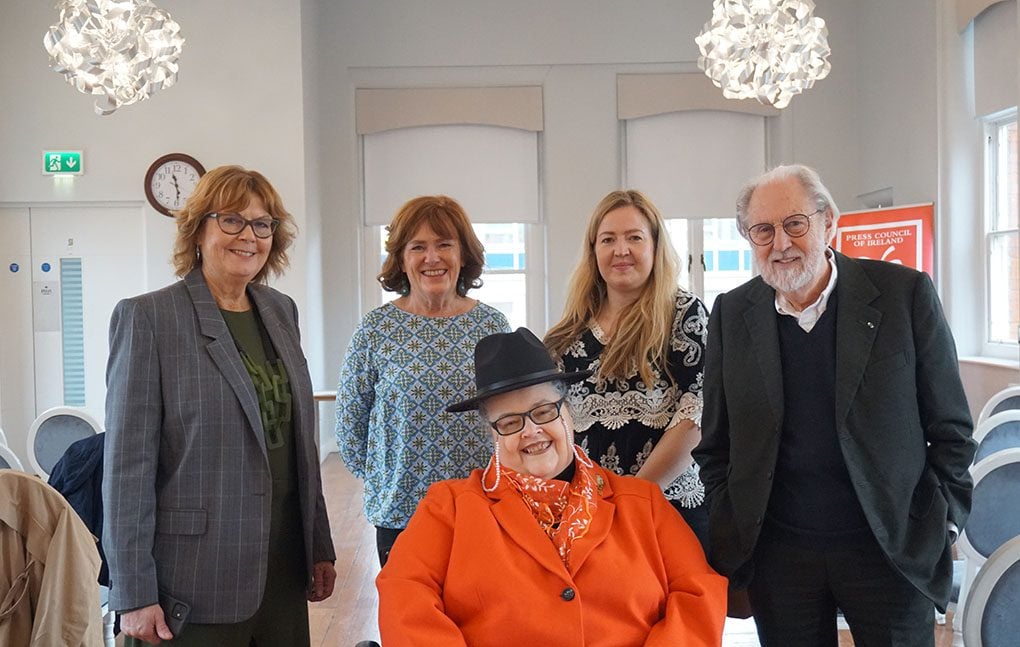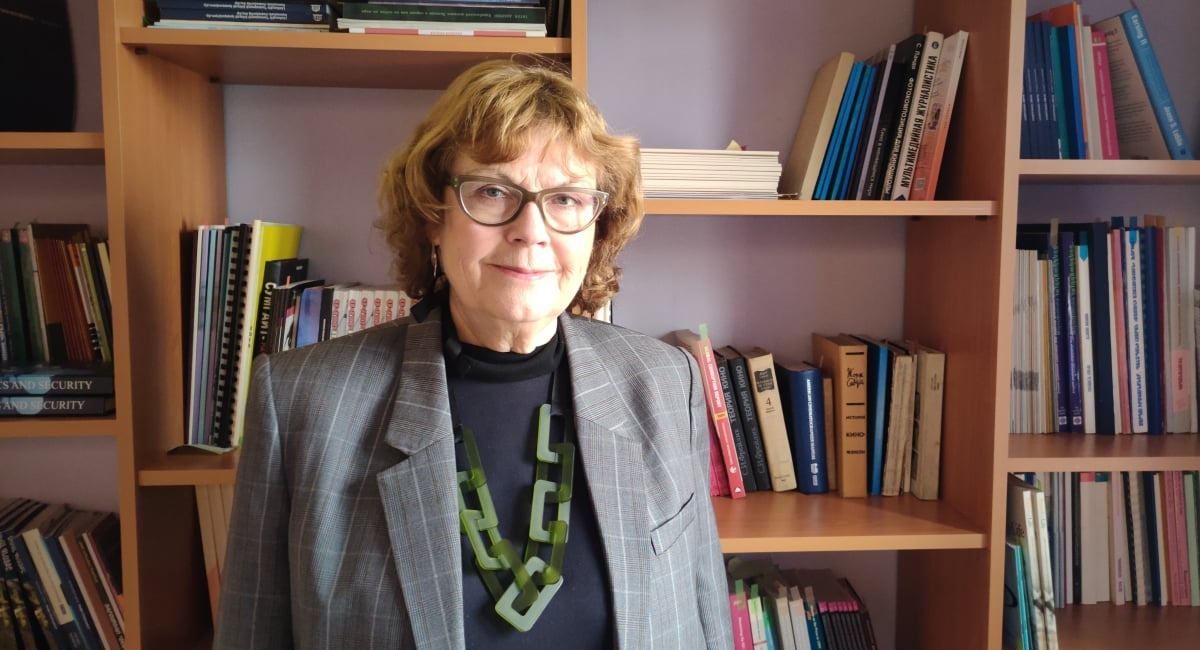The Press Council has been operating since 2007, bringing together all major print and online newsrooms in Ireland. This initiative for media self-regulation has been adopted by over 150 Irish print and online media outlets, all of which adhere to the principles outlined in the Code of Practice and pay annual membership fees.
The Press Ombudsman Institute is responsible for overseeing the self-regulation of the Irish press. The Irish Press Ombudsman, Susan McKey, is an experienced journalist who has worked with various non-governmental organizations. She is the third person to hold this position in Ireland. The office is small, featuring one full-time employee and one part-time employee, yet handles a significant volume of work.
Tell us about the Press Council of Ireland and your responsibilities as the Press Ombudsman.
The Irish Press Council was established because members of the media industry were concerned that the government might interfere and impose state regulation on the press. To prevent this, they chose to create a self-regulatory body that, while recognized by the state, operates independently.
The organization is managed by a group of 13 individuals: six from the media industry and seven from civil society. This group is responsible for appointing a Press Ombudsperson, a position I currently hold. As the Press Ombudsperson, my role is to address complaints from the public regarding publications. I use the Code of Practice, an ethical guideline rather than a legal requirement, though it complies with the law.
My decisions are based on my interpretation of this Code, and individuals can appeal my decisions to the Press Council. If an appeal is made, the entire Press Council will review the case and make a determination. Once the Council has made a decision, there is no further avenue for appeal.
If a publication is found to have breached one of the principles of the Code, then they have to publish the decision that I’ve made or the decision on appeal by the Press Council. It is very much a matter of trust among the publications which are members. If someone refuses to publish, then they cease to be part of the body that works the system. The advantages of our first and primarily solidarity between mainstream media organizations that subscribe to an ethical code are very important at a time when there are all kinds of people putting themselves forward as journalists who are actually propagandists.
There’s also that if someone sues a newspaper, if someone says, you have defamed me, you’ve taken my good name, I’m going to bring you to court. That can immediately plunge a newspaper or a publication into extreme financial challenges because it’s costly to go to law. It’s very expensive to defend a case.
And defamation cases in Ireland are notoriously high. So, it could literally wipe out a newspaper or have a defamation suit brought against them. Even if it doesn’t succeed because the costs are so high, it can be disastrous. If you’re a member of the press council and you’re in good standing with the press Council, in other words, that you haven’t had a string of decisions taken against you that can be taken into account by a judge.
To what extent are people aware of your press self-regulation initiative and utilizing your services?
My feeling about the Press Council and the press ombudsperson system is that it’s not well known to the public. Even though newspapers are required to include a small statement indicating their membership in the Press Council, this information is often too small for many readers to notice. Local print newspapers must inform their audience how to file complaints, but many people are still unaware of this system. They need to understand it, as the system can only function effectively if there is a clear flow of communication.

Susan McKay at the 2023 Annual Report presentation event. Photo from the Press Council of Ireland website
People believe that if something in the media concerns them, they have a say and can express that it is unethical. You know, they need a way of intervening. I’ve only been in my job for two years. I plan to make the office much more visible and then see what happens. Maybe there won’t be a lot of complaints. Maybe there will be.
The newspapers take it seriously, they try not to breach the Code. It is relatively uncommon for complaints to be upheld. As a result, some cynical members of the public may think that the system is ineffective because complaints rarely succeed. They might not realize this is often due to newspapers carefully adhering to the Code of Practice. I’m unsure how to educate people about this, but it is undoubtedly part of my job to find ways to convey that they shouldn’t be cynical. The industry genuinely strives to adhere to ethical principles.
It’s interesting to find that the members of the Press Council are extremely diverse. Some very serious newspapers deal a lot with public and trust journalism. And then there are others that don’t and are more weighted towards entertainment or stories that aren’t necessarily profoundly in the public interest. And the Code works for all of them because it is primarily about respecting people and their rights.
Please tell us about the number of appeals addressed to you and the process of their referral and influence.
In 2023, there were a total of 305 complaints. However, 160 of these complaints were not pursued by the individuals who filed them. Some of these people were unfamiliar with the process and did not submit their complaints within the required three-month period following the publication. Additionally, there were cases where individuals filed complaints about publications that were not Press Council members.
In 2023, I made 25 decisions; with some of those, 17 were not upheld, so eight were upheld. And of those, one was overturned, overturned on appeal. And in two cases, there was what’s called sufficient remedial action. And that means that the publication agreed.

Annual Reports of the Press Council of Ireland
We also offer a conciliation service. If a complaint is made, the first thing that happens is the case manager in my office will go to the newspaper and say; this person says that you published something untrue. Do you accept this? Are you willing to publish a correction, or are you willing to allow the person to write an opinion piece themselves, correcting it? Are you willing to publish a letter from them? You know, a newspaper can take a range of measures to resolve a complaint without such a complaint coming to the Press Ombudsman. Sometimes that will happen. That means that’s it. However, the complainant may find that insufficient, and the appeal may still come to me even after the paper has published a correction.
I needed more than what was provided to me. I might say, “Yes, you didn’t fulfill your obligation.” The newspaper didn’t offer enough assistance. Alternatively, I might conclude that the newspaper did not take sufficient steps to resolve the complaint, in which case I won’t uphold the complaint. Sometimes, a newspaper might offer a lecture as a form of resolution. However, if they have published something seriously untrue, then a simple acknowledgment letter is not enough. The paper must take full responsibility and retract the article or publish a correction or apology. It’s a matter of balance as well. Yeah, it’s often not very clear, but one of the things that I feel is that this Code, the principles, are so broad that it would be difficult for an ethical publication not to agree with these principles.
Who would openly support the right to publish false information? Who would advocate for the right to share biased opinions that may incite hatred? Who would claim the right to publish photographs of children? The principles involved are quite broad. Personally, I believe it would be very challenging to have a system where each publication follows its own set of guidelines.
I believe having a defined Code for the Press Council to assess complaints will be more efficient overall; this doesn’t mean that the publications can’t have their own codes of conduct. For example, a tabloid newspaper often uses very different language than other publications. Tabloids might use phrases like “caging beasts” when referring to notorious criminals. Instead of simply saying someone was jailed, some publications use more dramatic terms like “caged” to describe imprisonment. The idea is that a prison can be viewed as a cage. However, not all publications embrace this kind of language; some consider it disrespectful. In my office, there is an understanding that tabloid language can be acceptable as long as it doesn’t incite hatred. This style of writing is distinct from that of more traditional news outlets. It’s important to note that not all articles need to serve the public interest. While I’m not suggesting they should oppose the public interest, some articles are intended purely for entertainment, while others are meant to be light-hearted. And not every article is obliged to be serious. But you can have a complaint against an article that isn’t serious.
Which topics do you receive the most appeals for?
I believe there is a growing problem with hostility toward journalism, particularly from individuals on the far right. There have been various demonstrations and meetings in Ireland where journalists have faced intimidation. Some individuals seem to encourage aggression towards these journalists. I believe press freedom cannot exist in an environment where journalists are intimidated. There should not be any place in the press for those who support such behavior.
I believe there are many more complaints related to identity issues, particularly those concerning the LGBTQ+ community, with the topic of transgender rights becoming increasingly significant in Ireland. The principle of hatred is likely one that requires careful monitoring. However, the majority of complaints still focus on issues of truth and accuracy.
One of the challenges facing the journalism industry is that many journalists I know have to work two or three times harder than before. Today, they are expected to handle various tasks, including audio production, video creation, editing, and print work, all of which add to their workload.
They work on a 24-hour cycle, and often, they are not given as much time to produce quality work as journalists used to. People are trying to adhere to a code of practice while facing significant pressure. As a result, it has become quite challenging to be an ethical journalist today.







